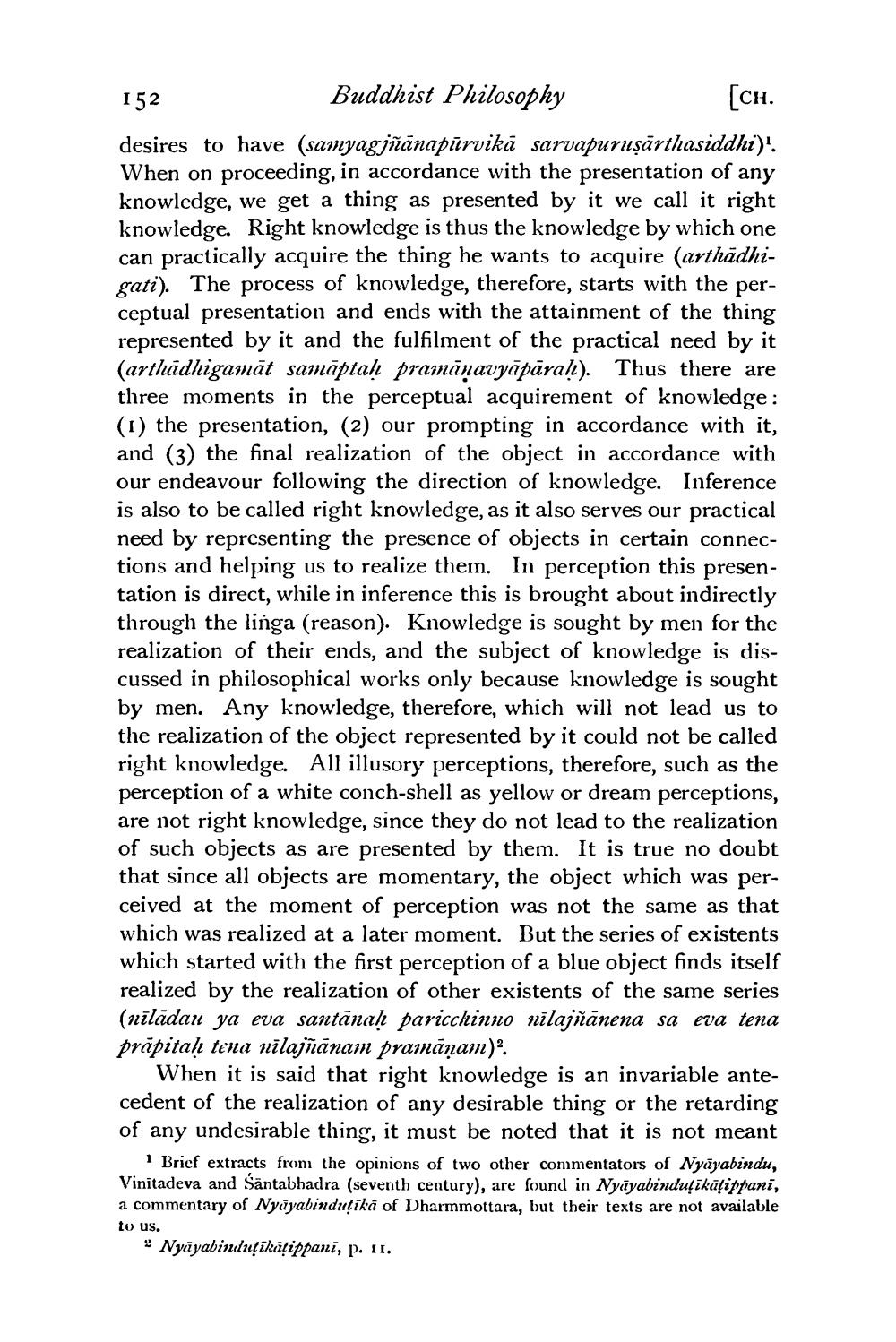________________
152
Buddhist Philosophy
[CH.
desires to have (samyagjñānapūrvikā sarvapuruşārthasiddhi)'. When on proceeding, in accordance with the presentation of any knowledge, we get a thing as presented by it we call it right knowledge. Right knowledge is thus the knowledge by which one can practically acquire the thing he wants to acquire (arthādhigati). The process of knowledge, therefore, starts with the perceptual presentation and ends with the attainment of the thing represented by it and the fulfilment of the practical need by it (arthādhigamāt samāptah pramānavyāpāral). Thus there are three moments in the perceptual acquirement of knowledge: (1) the presentation, (2) our prompting in accordance with it, and (3) the final realization of the object in accordance with our endeavour following the direction of knowledge. Inference is also to be called right knowledge, as it also serves our practical need by representing the presence of objects in certain connections and helping us to realize them. In perception this presentation is direct, while in inference this is brought about indirectly through the linga (reason). Knowledge is sought by men for the realization of their ends, and the subject of knowledge is discussed in philosophical works only because knowledge is sought by men. Any knowledge, therefore, which will not lead us to the realization of the object represented by it could not be called right knowledge. All illusory perceptions, therefore, such as the perception of a white conch-shell as yellow or dream perceptions, are not right knowledge, since they do not lead to the realization of such objects as are presented by them. It is true no doubt that since all objects are momentary, the object which was perceived at the moment of perception was not the same as that which was realized at a later moment. But the series of existents which started with the first perception of a blue object finds itself realized by the realization of other existents of the same series (nīlādau ya eva santānah paricchinno nilajñānena sa eva tena prăpitaḥ tena nilajñānam pramāņam)?
When it is said that right knowledge is an invariable antecedent of the realization of any desirable thing or the retarding of any undesirable thing, it must be noted that it is not meant
1 Brief extracts from the opinions of two other commentators of Nyāyabindu, Vinitadeva and Säntabhadra (seventh century), are found in Nyāyabinduțīkātippani, a commentary of Nyāyabinduļikā of Dharmmottara, but their texts are not available to us.
2 Nyāyabinuluļikāļippani, p. II.




